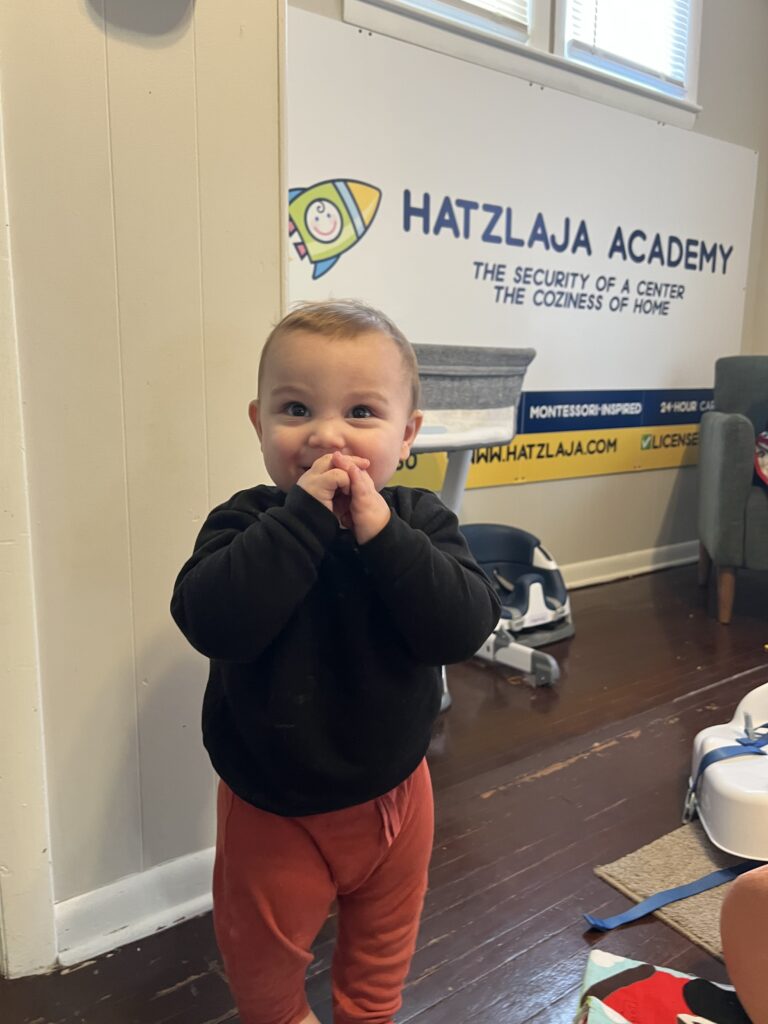Potty training is a major milestone in a child’s development, but it can also be a challenging and sometimes frustrating process for parents. Every child learns at their own pace, and what works for one may not work for another. The key is patience, consistency, and positive reinforcement.
At Hatzlaja Early Childhood Academy, we encourage children to be fully potty-trained by the time they enter our Preschool Program at age 3, but we also understand that every child’s journey is unique. We are happy to work with families to make the transition as smooth as possible!
When is My Child Ready for Potty Training?
There’s no exact age when potty training should begin, but most children show signs of readiness between 18 months and 3 years old. Watch for these signs:
✔️ Stays dry for longer periods (at least 2 hours at a time)
✔️ Shows interest in the potty or wearing “big kid” underwear
✔️ Can follow basic instructions
✔️ Communicates when they need to go (or after they have gone)
✔️ Is uncomfortable in a wet or dirty diaper
✔️ Can pull pants up and down independently
If your child is showing multiple signs of readiness, it may be time to start potty training!
Potty Training Techniques That Work
1. Use Positive Reinforcement
✔️ Praise successes – Celebrate even the smallest victories!
✔️ Use reward charts or stickers to track progress.
✔️ Never punish accidents – staying positive encourages confidence.
Try this: “Wow! You sat on the potty! You’re doing such a great job learning!”
2. Create a Consistent Routine
✔️ Take them to the potty at regular times – first thing in the morning, after meals, before naps, and before bed. Putting a regular alarm on your phone can also help remind you!
✔️ Use a visual schedule to help them understand when potty time happens.
3. Let Them Choose Their Underwear
✔️ Letting your child pick fun, colorful underwear can make potty training exciting!
Try this: “Would you like to wear your superhero underwear today?”
4. Make It Fun
✔️ Use books, songs, or potty-training videos to encourage engagement.
✔️ Turn it into a game – have them “race” to the potty before an accident happens!
5. Be Prepared for Accidents
✔️ Have extra clothes on hand (at home and at their childcare facility).
✔️ Encourage them to help clean up in a low-stress way.
Try this: “Oops! Accidents happen. Let’s clean up and try again next time.”
6. Nighttime Training Takes Longer
✔️ Many children need diapers or Pull-ups at night even after they are potty-trained during the day.
✔️ Limit fluids close to bedtime and take them to the potty before bed.
How Hatzlaja Early Childhood Academy Supports Potty Training
At Hatzlaja Early Childhood Academy, we understand that potty training is a process that looks different for every child. While we ask that children be fully potty-trained by the time they enter our Preschool Program (age 3), we are committed to working with families who need extra support during this stage.
✔️ We reinforce potty-training routines in the classroom.
✔️ We provide gentle reminders and praise successes throughout the day.
✔️ We partner with parents to keep a consistent approach between home and school.
If your child is still working on potty training, we are happy to collaborate and provide guidance along the way.
Potty training can feel like a long journey, but with consistency, patience, and encouragement, your child will get there! Every child learns at their own pace, so it’s important to celebrate progress and stay positive.
At Hatzlaja Early Childhood Academy, we are here to support families every step of the way. If you have any questions about potty training and your child’s transition into the Preschool Program, feel free to reach out—we’re happy to help!



